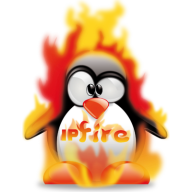

Fortinet FortiGate and IPFire are competing network security solutions. Fortinet FortiGate holds the upper hand in features, while IPFire performs better in ease of deployment.
Features: Fortinet FortiGate offers advanced threat protection, intrusion prevention, and web filtering. It supports SD-WAN and provides a comprehensive security fabric. IPFire includes essential firewall capabilities, support for virtual private networks, and intrusion detection and prevention systems, emphasizing open-source flexibility.
Ease of Deployment and Customer Service: Fortinet FortiGate integrates smoothly into existing networks with detailed documentation and 24/7 support. IPFire offers a simplified deployment with a focus on community-driven support and easy configuration.
Pricing and ROI: Fortinet FortiGate involves a higher initial setup cost due to its enterprise-level features, offering a significant ROI for high-level security needs. IPFire, being open-source, presents a lower cost of entry, beneficial for smaller organizations or those with limited budgets.
| Product | Market Share (%) |
|---|---|
| Fortinet FortiGate | 18.7% |
| IPFire | 1.7% |
| Other | 79.6% |

| Company Size | Count |
|---|---|
| Small Business | 357 |
| Midsize Enterprise | 133 |
| Large Enterprise | 189 |
Fortinet FortiGate is a versatile network security tool offering features like VPN, firewall, web filtering, intrusion prevention, and scalability. It is known for its performance and integration with other Fortinet products, making it a preferred choice for robust cybersecurity.
Fortinet FortiGate stands out as a comprehensive cybersecurity solution with strong performance and ease of configuration. It delivers unified threat management, integrating features such as dynamic routing, SD-WAN support, and centralized management. Despite its strengths, improvements in the web interface's stability, pricing structures, and reporting capabilities are needed. Users seek better integration with third-party tools and automation advancements to enhance the experience further. These enhancements, alongside improvements in bandwidth management and the reduction of licensing costs, are points of interest for users looking to capitalize on FortiGate's extensive capabilities.
What are Fortinet FortiGate's key features?Fortinet FortiGate is widely implemented across industries as a primary firewall system for securing internet gateways and safeguarding data centers. It supports businesses in achieving SD-WAN integration and enhances cybersecurity by providing essential features like antivirus, web filtering, and application control. Enterprises utilize FortiGate for securing remote connections and ensuring compliance with security standards, making it adaptable for different network sizes and industries.
IPFire enhances network security and protects against cyber threats. It provides a secure firewall, secure remote access, and customizable options. Users praise its ease of use, flexibility, and reliability for network monitoring and traffic shaping. Its valuable features include efficient firewall capabilities, a user-friendly interface, and reliable network performance.
We monitor all Firewalls reviews to prevent fraudulent reviews and keep review quality high. We do not post reviews by company employees or direct competitors. We validate each review for authenticity via cross-reference with LinkedIn, and personal follow-up with the reviewer when necessary.